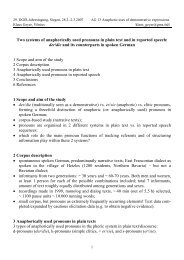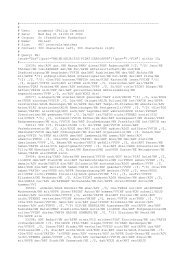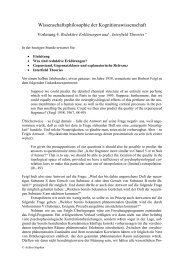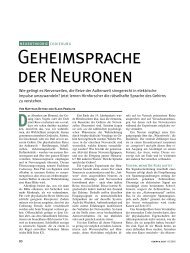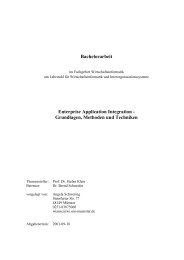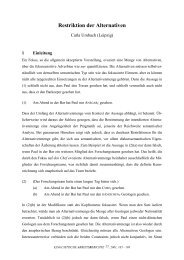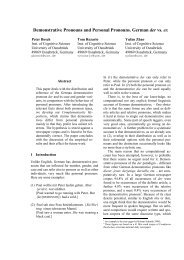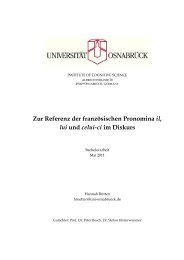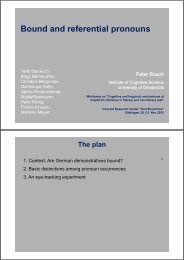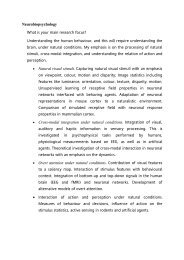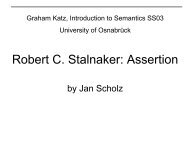Weak definites and German preposition - Cognitive Science
Weak definites and German preposition - Cognitive Science
Weak definites and German preposition - Cognitive Science
Create successful ePaper yourself
Turn your PDF publications into a flip-book with our unique Google optimized e-Paper software.
<strong>German</strong> Preposition-Article Contractions<br />
- Lexical restrictions<br />
In fast speech, <strong>and</strong> occasionally in writing, we find additional<br />
contractions, also in st<strong>and</strong>ard <strong>German</strong> (sometimes written with<br />
an apostrophe):<br />
an's, auf's, durch's, für's, ins, über's, um's, vor's,<br />
hintern, übern, vorn, hinterm, überm, vorm, ...<br />
And there are many more contracted forms in non-st<strong>and</strong>ard<br />
varieties of <strong>German</strong> <strong>and</strong> in various <strong>German</strong> dialects.<br />
In the following I will only look at am, beim, im, vom, zum, zur<br />
---------------------------------<br />
Fast speech is a bit of a methodological problem, since intuitions about what sounds<br />
like a contracted form may be influenced by the perception of quickly spoken<br />
uncontracted forms.<br />
<strong>German</strong> Preposition-Article Contractions<br />
- no anaphoric function<br />
For <strong>German</strong> cPPs we can observe restrictions that do not show<br />
up for English definite NPs:<br />
(31) Am Ulmenweg ist ein neuer Supermarkt mit einer<br />
herrlichen Käsetheke. Warst du schon {bei dem / # beim /<br />
# einem} Supermarkt?<br />
(32) There's a new supermarket on Elm Street with a great<br />
cheese counter. Have you already been to {the / # a}<br />
supermarket?<br />
Unlike the English or <strong>German</strong> rPP, the <strong>German</strong> WD cPP cannot<br />
function anaphorically, just like the indefinite NP can't. - This<br />
raises doubts as to the referential status of WDs, which did not<br />
come up with corresponding English observations.<br />
1<br />
3<br />
1<br />
4<br />
13<br />
14



